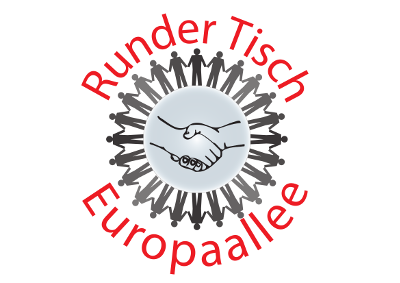(deutsche Version unten / German version below)
#Colonial #genocide in #Namibia and how it is dealt with today:
Between celebration and denial:
Film, lecture and discussion
on selective cultures of remembrance
with Laidlaw Peringanda (Namibian Genocide Association + Swakopmund Genocide Museum)
on Sunday, 1 December 2024 from 3-6 pm
at
#Stadtlabor Göttingen (Wilhelmsplatz 3, Göttingen)
120 years ago, German soldiers committed the first #genocide of the 20th century against the
#OvaHerero and
#Nama in what is now Namibia, the former German colony of ‘German South-West
Africa’. After both the OvaHerero and the Nama were expelled from their territories, both population groups formed an alliance and organised political uprisings. It is estimated that over
100,000 OvaHerero and Nama as well as members of other population groups lost their lives between 1904 and 1908.
15-16h Screening of the
#documentary „ German Colonial Genocide in
#Swakopmund 1904 – 1908“ (in Englisch) by Forensic Architecture with the protagonist Laidlaw Peringanda
During their genocidal campaign against the OvaHerero and Nama, German colonial troops set up concentration camps in Namibia. The largest was located in the port city of Swakopmund, which
was built using forced labour. Together with local activists, researchers reconstructed the structure of the town and revealed the location of the concentration camp.
16-18h Lecture/presentation Laidlaw Peringanda: „Celebration and Denial: Selective Memory Cultures in Swakopmund“ (in Englisch)
#Genocide | land theft | aftermath of colonialism | remembrance work |
#reparations | colonial continuities | neo-colonial German politics today
Examples from #Namibia and
#Germany are used to approach these topics: Swakopmund is now a popular tourist attraction on the Namibian coast. The well-kept town centre and the picturesque
beaches give the town a cosy atmosphere. However, the town's history is remembered inconsistently in the public space: among other things, there are subtle glorifications of Swakopmund's continuing colonial character. These are a result of German colonisation and are still supported by a German-speaking minority with disproportionate access to power and influence.
The same can be said for German cities such as
#Göttingen, where problematic monuments such as the ‘Southwest Africa Monument’ can still be found in public spaces with little contextualisation. The
numerous fatal contributions made by academics from Göttingen to paving the way for colonialism are also rarely discussed controversially.
Laidlaw Peringanda is chairman of the Namibian Genocide Association and founder of the Swakopmund Genocide Museum. He will talk about his work, commitments and perspectives on dealing with history and its effects to this day. Many of Laidlaw's ancestors were killed during the genocide of 1904-1908.
________
mit Laidlaw Peringanda ( Nam ibian Genocide Association + Swakopmund Genocide Museum)
am Sonntag den 1.12.2024 von 15-18 Uhr
im Stadtlabor Göttingen (Wilhelmsplatz 3, Göttingen)
Vor 120 Jahren verübten deutsche Soldaten den ersten Völkermord des 20. Jahrhunderts an den OvaHerero und Nama im heutigen Namibia, der damaligen deutschen Kolonie „Deutsch-
Südwestafrika“. Nachdem sowohl die OvaHerero als auch die Nama von ihren Territorien vertrieben wurden, verbündeten sich beide Bevölkerungsgruppen und organisierten politische
Aufstände. Schätzungsweise über 100.000 OvaHerero und Nama sowie Angehörige weiterer Bevölkerungsgruppen verloren zwischen 1904-1908 ihr Leben.
ca. 15-16h Vorführung Dokumentation „ German Colonial Genocide in Swakopmund 1904 – 1908“ (auf Englisch) von Forensic Architecture mit dem Protagonisten Laidlaw Peringanda
Während ihrer Völkermordkampagne gegen die OvaHerero und Nama gründeten deutsche Kolonialtruppen Konzentrationslager in Namibia. Das größte befand sich in der Hafenstadt Swakopmund, die durch Zwangsarbeit gebaut wurde. Mit lokalen Aktivist*innen rekonstruierten Wissenschaftler*innen den Aufbau der Stadt und enthüllten die Lage des Konzentrationslagers.
ca. 16-18h Vortrag Laidlaw Peringanda: „Celebration and Denial: Selective Memory Cultures in Swakopmund“ (auf Englisch, Flüsterübersetzung ins Deutsche nach Anmeldung möglich)
Völkermord | Landraub | Nachwirkungen von Kolonialismus | Erinnerungsarbeit |
Wiedergutmachung | koloniale Kontinuitäten | neokoloniale deutsche Politik
Um sich diesen Themen zu nähern, werden Beispiele aus Namibia und Deutschland herangezogen: Swakopmund ist heute eine beliebte Touristenattraktion an der Küste Namibias. Das gepflegte
Zentrum und die malerischen Strände verleihen der Stadt eine gemütliche Atmosphäre. Jedoch wird die Geschichte der Stadt im öffentlichen Raum uneinheitlich erinnert: Es finden sich unter anderem subtile Verherrlichungen des fortbestehenden kolonialen Charakters Swakopmunds. Diese sind ein Ergebnis der deutschen Kolonisierung und werden bis heute getragen von einer deutschsprachigen Minderheit mit überproportionalem Zugang zu Macht und Einfluss.
Ähnliches lässt sich für deutsche Städte wie Göttingen sagen, wo problematische Monumente wie das „Südwest-Afrika-Denkmal“ immer noch wenig kontextualisiert im öffentlichen Raum zu finden
sind. Auch die zahlreichen fatalen Beiträge Göttinger Wissenschaftler zur Wegbereitung des Kolonialismus werden nur selten kontrovers diskutiert.
Laidlaw Peringanda ist Vorsitzender der Namibian Genocide
Association sowie Gründer des Swakopmund Genocide Museum. Er
wird über seine Arbeit, Engagements und Perspektiven auf
Umgänge mit der Geschichte und den Wirkungen bis heute
sprechen. Viele von Laidlaws Vorfahren wurden während des
Völkermords von 1904-1908 getötet.

![]() oder: https://www.goettingen.de/portal/aseiten/veranstaltungskalender-902000001-25480.html?titel=Veranstaltungskalender
oder: https://www.goettingen.de/portal/aseiten/veranstaltungskalender-902000001-25480.html?titel=Veranstaltungskalender


 Neu
Neu ab jetzt jeden Dienstag ab 14 Uhr Erzählcafé bei uns im Weststadtzentrum.
ab jetzt jeden Dienstag ab 14 Uhr Erzählcafé bei uns im Weststadtzentrum.










 fühlt sich fröhlich – hier:
fühlt sich fröhlich – hier: 


 bunte@caritas-suedniedersachsen.de
bunte@caritas-suedniedersachsen.de 05 51 / 9 99 59-15
05 51 / 9 99 59-15
